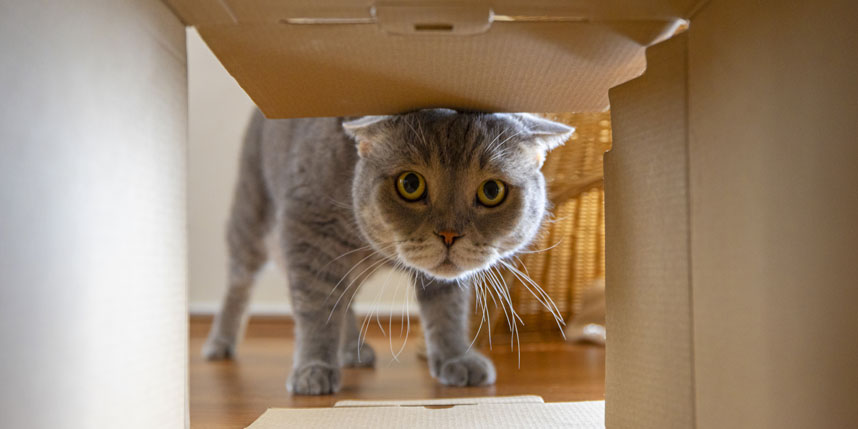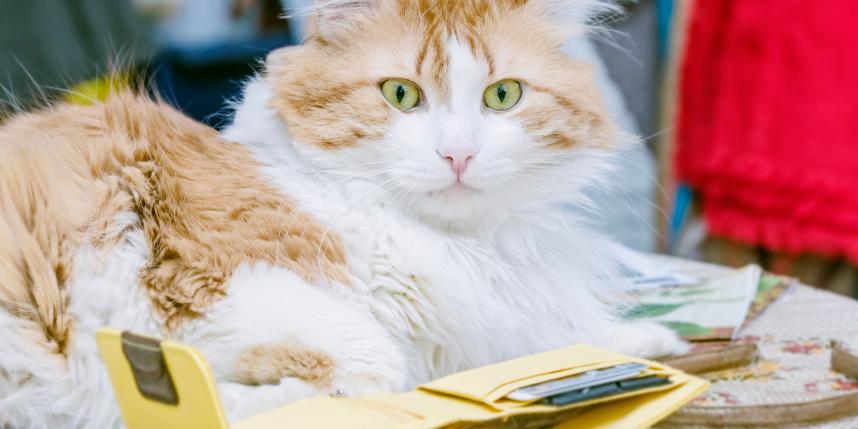THE CURIOUS TALE OF CATS AND BOXES
The curious tales of cats and boxes — including five reasons for this cardboard love affair backed by science.

How to Use the Litter Box to Find Your Lost Cat
What do you do when your indoor cat suddenly goes missing?
First, try not to panic, and take a few moments to thoroughly check your home before assuming the worst. Chances are, they’ve found a nook or cranny somewhere and are hidden away for a peaceful nap.
However, if they did in fact manage to sneak out, your litter box may be the key to getting them back sooner than later.
Use your cat’s litter box as a lighthouse
its familiar scent could help LURE them back home
Leave your litter box outside of your house — on the porch, or close to the back door — in case your cat happens to come by your house or come back while you are gone.
The litter box can serve as a beacon of familiarity and can help them to smell their own scent and lure them back home. Also, be aware that your litter box could potentially attract predators, so keep a close eye on it and be sure to bring it inside if you’re worried it’s attracting the wrong crowd.
Other ways to attract your cat back home using scents include:
- Laundry — Leave out a cardboard box with used towels, old shirts, or blankets that smell like you inside to give it a familiar scent.
- Food & Water — Place your cat’s favorite food and water bowls outside as well.
- Toys & Treats — Leave out some familiar toys, treats or catnip and your cat may come running home.

In addition to leaving out familiar items like litter boxes and laundry, there’s a whole host of other things you can do to find your lost cat.
TIPS FOR FINDING A LOST CAT

SEARCH EARLY AND AT NIGHT
The early hours of the morning or late night, while it’s still dark, are the best time to look for your cat, as the atmosphere will be more silent.
Your voice will carry farther during these times, and it’s less likely that cars or people will scare away your cat.
During the day, your cat may be more inclined to hide away and not respond to calls or commands. This is because they likely don’t want to be seen by other animals, and they may also be scared of any foot or car traffic.

dress for the occasion
Before you go outside to look for your cat, put on some unlaundered clothes so that you give off a strong, personal scent that your cat will recognize.
Get a flashlight to help you look in small, dark places where your cat may be inclined to hide. Lastly, grab a bag of treats to gently shake, so that they might recognize the sound and be inclined to search for the source.

spread the word
There’s a good chance your cat could be in your neighbors’ yards, so make sure to show them a photo of your cat, and ask them if it’s okay to search their yards before doing so.
You should also share a picture and details of your lost cat on social media — such as Facebook, Twitter, and even Instagram. If you’re part of a local neighborhood or community group on Facebook, share some details with other followers.
You can also print our flyers or ask for help from your local newspaper.
And you should definitely provide local shelters with your cat’s photo and your contact information in case someone finds them and turns them in.
Cats are resilient and clever. They are often able to survive on their own outside for long periods of time, even if they are indoor cats, so don’t lose hope if it takes a while to find them.
For more tips, tricks, and insight on how to keep your cat happy and healthy, check out our blog or visit our Cat Care page.



